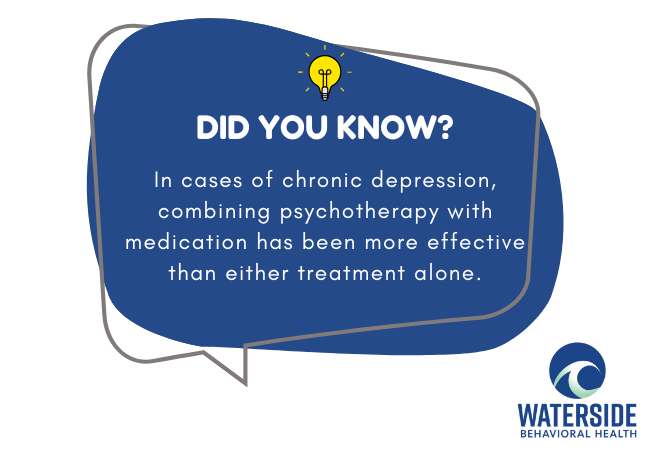Finding the right therapist for depression treatment can be one of the most significant decisions you’ll ever make in your mental health journey. The quality of this therapeutic relationship often directly influences how successful treatment will be. When someone is in the throes of depression—struggling with motivation, hopelessness, or fatigue—the thought of searching for a therapist may feel overwhelming. But understanding what to look for, what questions to ask, and what kind of care best matches your needs can make the process more manageable and ultimately more effective.
This article will guide you through the steps to take when searching for a therapist, the various therapeutic approaches used in treating depression, and how you can evaluate whether a particular provider is a good fit for your goals and preferences.
Understanding the Role of a Therapist in Depression Recovery
A therapist does far more than simply listen. They serve as a guide, an emotional mirror, and a strategist for long-term mental wellness. The right therapist offers a structured and supportive environment in which you can explore underlying causes of your depression, reframe negative thinking patterns, build coping skills, and begin to process emotional wounds.
People often assume that all therapists approach depression the same way, but treatment styles, modalities, and levels of care vary widely. For example, some therapists might specialize in past trauma, while others emphasize behavior-focused solutions. Some are warm and conversational, while others are more analytical or structured. Your unique needs will determine the kind of therapeutic relationship that’s most beneficial.
Step 1: Clarify Your Treatment Goals
Before you begin the search, take time to consider what you want out of therapy. Are you looking to better manage daily symptoms? Heal from a past trauma that still weighs on you? Navigate a life transition, such as a breakup, job loss, or bereavement?
Knowing your goals will help you filter therapists more effectively. It also prepares you for that all-important first conversation when you’ll need to ask questions and assess fit.
Additionally, think about your preferences regarding therapist gender, communication style, cultural background, or specialties. These are not superficial concerns—they can strongly affect the comfort and trust you experience in session.
Step 2: Understand the Types of Therapy Available
Not all therapy is created equal. Various methods are supported by different bodies of research, and some are more effective than others for specific mental health conditions. For depression in particular, the following modalities are most commonly recommended:
-
Cognitive-behavioral therapy (CBT): A short-term, goal-oriented approach focused on identifying and changing distorted thought patterns that contribute to depression. Techniques often include journaling, behavioral activation, and cognitive restructuring.
-
Interpersonal therapy (IPT): Emphasizes the role of social relationships and life events in depressive symptoms. IPT helps clients build communication skills, manage conflict, and grieve past losses.
-
Psychodynamic therapy: Involves deep exploration of unconscious processes and childhood experiences that shape current behaviors and emotions.
-
Mindfulness-based cognitive therapy (MBCT): Combines mindfulness practices with cognitive techniques to reduce rumination and increase present-moment awareness.
If you’re seeking a structured and skills-based approach, Cognitive-Behavioral Therapy in Massachusetts may be particularly valuable. It helps many individuals understand the link between thought, emotion, and behavior while equipping them with practical tools to challenge depressive spirals.
Step 3: Consider the Level of Care You Need
Therapy exists along a spectrum—from weekly outpatient sessions to more intensive care. If your depression is moderate to severe, or if it interferes significantly with daily functioning, your needs might go beyond traditional weekly therapy. In such cases, a more immersive treatment option may be more appropriate.
Some individuals benefit from Intensive Outpatient Programs in Massachusetts, where therapy is conducted several days per week but allows clients to live at home and maintain some personal responsibilities. Others may require the structure and support offered by Partial Hospitalization Programs in Massachusetts, where treatment involves full-day sessions and often includes psychiatric evaluation, group therapy, and medication management. These levels of care provide a buffer for those who need stability but don’t meet the threshold for inpatient hospitalization.
Step 4: Begin the Search
Once you’ve identified your goals, preferences, and desired level of care, it’s time to start your search. Here’s how to go about it effectively:
-
Use reputable directories: Psychology Today, TherapyDen, and GoodTherapy allow you to filter therapists based on specialty, insurance, gender, and more.
-
Consult your primary care physician: Many doctors can refer you to trusted therapists in the community.
-
Check with your insurance provider: Find out which therapists in your area are in-network to minimize out-of-pocket costs.
-
Look for specialization: Ensure the therapist has experience treating depression and, if applicable, any co-occurring issues such as anxiety or trauma.
-
Don’t overlook credentials: Look for licensed clinical social workers (LCSWs), licensed mental health counselors (LMHCs), licensed psychologists (PhDs or PsyDs), or board-certified psychiatrists, depending on your needs.
-
Review websites: If the therapist has a personal website or is listed on the page of a Mental Health Treatment in Massachusetts, spend some time reading through their approach, background, and therapeutic philosophy.

Step 5: Ask the Right Questions in the First Session
The initial session is often considered a trial run. It’s a chance for you to see how the therapist works and whether their style resonates with you. Consider asking questions like:
-
What experience do you have working with people who have depression?
-
What is your typical approach in therapy?
-
How do you track progress over time?
-
What is your availability and cancellation policy?
-
Do you offer virtual sessions?
Pay attention not only to their answers but also to how you feel during the session. Do you feel heard, respected, and safe? If not, that’s okay—it’s perfectly acceptable to continue your search until you find the right fit.
Step 6: Evaluate the Fit Over Time
Sometimes, even a therapist who seems like a good match during the first session may not be the best long-term option. Therapy is a dynamic relationship, and its success depends on mutual trust and open communication.
After 3–4 sessions, reflect on your experience. Are you beginning to feel more hopeful or empowered? Are your symptoms improving, even slightly? If not, bring your concerns to your therapist. A skilled therapist will be open to feedback and willing to adjust their approach or refer you to someone who might be a better match.
Additionally, therapists should provide a clear treatment plan, which may include frequency of sessions, therapeutic goals, and expected outcomes. This gives you a roadmap and benchmarks for evaluating your progress.
Why Choosing the Right Support Matters
The search for the right therapist is not just about credentials or clinical techniques—it’s about human connection. Depression can distort one’s self-view and foster a sense of isolation. A competent, compassionate therapist can serve as a lifeline—someone who helps untangle complex emotions, challenge hopeless beliefs, and celebrate victories big and small.
Moreover, some individuals who seek help for depression discover that their emotional struggles stem from unresolved trauma. In such cases, it’s essential to choose a provider who understands and integrates trauma-informed care. If you’re dealing with both depression and past trauma, a provider who offers Depression Therapy in Massachusetts may be equipped to handle that dual focus.
Why Choose Waterside Behavioral Health
At Waterside Behavioral Health, we understand that choosing a therapist is an incredibly personal decision. Our team is committed to creating an environment where every client feels respected, empowered, and safe. We specialize in various evidence-based treatment options for individuals struggling with depression, anxiety, and trauma. Whether you’re seeking individual therapy, group support, or more structured care like Partial Hospitalization Programs in Massachusetts, we are here to help you take the next step toward healing.
Conclusion
The journey to healing from depression is deeply personal, and finding the right therapist is a crucial first step. It requires self-awareness, persistence, and sometimes, a bit of trial and error. But the rewards—renewed hope, restored energy, and a more fulfilling life—are absolutely worth it.
Whether you’re just beginning your search or reconsidering your current care, Waterside Behavioral Health can provide the guidance and expertise you deserve. As a leading Mental Health Treatment Center in Massachusetts, we’re here to support you every step of the way. To speak with someone about starting therapy, call us today at (774) 619-7750.
Frequently Asked Questions (FAQs)
What qualifications should I look for in a therapist for depression?
Look for licensed professionals such as LCSWs, LMHCs, psychologists (PhD or PsyD), or psychiatrists. Experience in treating depression and a therapeutic style that fits your personality are key factors.
Is online therapy effective for depression treatment?
Yes, many people find online therapy to be just as effective as in-person sessions, especially for mild to moderate depression. It also offers added convenience and accessibility.
How long does it take to see progress in therapy for depression?
Progress varies, but many clients begin to notice improvements within 6–12 sessions. However, treatment timelines depend on the severity of symptoms and individual goals.
Can I switch therapists if I don’t feel a connection?
Absolutely. Therapy is most effective when you feel comfortable and understood. If the fit isn’t right, it’s perfectly acceptable to seek out another provider.
What types of therapy are best for treating depression?
Cognitive-behavioral therapy (CBT), interpersonal therapy, psychodynamic therapy, and mindfulness-based therapies are commonly used and supported by research.




